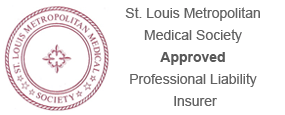One of the challenges for doctors is handling a wide variety of personalities – some patients are entirely trusting while others second-guess everything. The interrelationship between physician and patient is certainly affected by the personalities of both.
In some cases, patients do not wish to follow the advice and recommendations of their doctor. Rather, they believe they know best. While all patients exhibit some degree of autonomous control over their person, the forceful patient may insist on enlisting the doctor in his or her decision.
In some cases, physicians will allow such patients to effectually control their treatment, which oftentimes occurs gradually over the course of the doctor/patient relationship. As a general rule, the physician should never allow any patient to dictate treatment, particularly where informed consent as to the specific issue is absent. The consequences of doing so are enormous.
Patients are not doctors; they do not have the training and expertise of their physicians. To the extent a patient decides to disregard the recommendations of his or her physician and an adverse outcome results, that same patient will frequently blame the physician for such result. And more troubling is that, frequently, juries can be receptive to blaming the physician even though the patient ignored the doctor’s advice. Why? Because juries will assess whether the doctor made an error against the backdrop of the mistake made by the physician in continuing to treat the patient when he or she knew better. It is a “short leap” from “she made a mistake in allowing the patient to dictate treatment” to “she should be liable to the patient for the consequences of that mistake.”
From a pure risk management view, the best approach as to patients who insist on deciding their own treatment is to avoid treating them entirely. As a secondary (but far less effective) option, the use of thorough informed consent that is signed and dated is an absolute requirement. Even then, it is possible that a jury will not condone the doctor’s perceived “complacency” or “acquiescence” in the patient’s decision.


The Consequences of Patients Dictating Treatment
One of the challenges for doctors is handling a wide variety of personalities – some patients are entirely trusting while others second-guess everything. The interrelationship between physician and patient is certainly affected by the personalities of both.
In some cases, patients do not wish to follow the advice and recommendations of their doctor. Rather, they believe they know best. While all patients exhibit some degree of autonomous control over their person, the forceful patient may insist on enlisting the doctor in his or her decision.
In some cases, physicians will allow such patients to effectually control their treatment, which oftentimes occurs gradually over the course of the doctor/patient relationship. As a general rule, the physician should never allow any patient to dictate treatment, particularly where informed consent as to the specific issue is absent. The consequences of doing so are enormous.
Patients are not doctors; they do not have the training and expertise of their physicians. To the extent a patient decides to disregard the recommendations of his or her physician and an adverse outcome results, that same patient will frequently blame the physician for such result. And more troubling is that, frequently, juries can be receptive to blaming the physician even though the patient ignored the doctor’s advice. Why? Because juries will assess whether the doctor made an error against the backdrop of the mistake made by the physician in continuing to treat the patient when he or she knew better. It is a “short leap” from “she made a mistake in allowing the patient to dictate treatment” to “she should be liable to the patient for the consequences of that mistake.”
From a pure risk management view, the best approach as to patients who insist on deciding their own treatment is to avoid treating them entirely. As a secondary (but far less effective) option, the use of thorough informed consent that is signed and dated is an absolute requirement. Even then, it is possible that a jury will not condone the doctor’s perceived “complacency” or “acquiescence” in the patient’s decision.